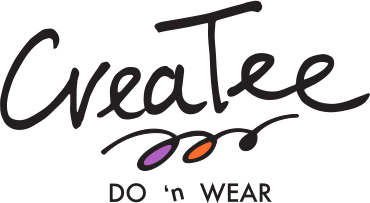 Imagine working or perhaps going to school where everyone were of similar backgrounds, with similar physical, emotional strengths and weaknesses and all are aging together along with the company; while they may keep gaining experience but as time goes boredom may creep in and at some point, along the line.
Imagine working or perhaps going to school where everyone were of similar backgrounds, with similar physical, emotional strengths and weaknesses and all are aging together along with the company; while they may keep gaining experience but as time goes boredom may creep in and at some point, along the line.
Growing up in Segambut Bahagia area, Kuala Lumpur, Malaysia, and being able to attend Bukit Nanas Convent, which is one of the most diverse schools, I met and socialized with other girls from different social, cultural and religious backgrounds. Hearing and speaking different languages. I learned quite at a very young age that there is never one way in doing things. Learning about empathy and respect. That is the beginning of inclusivity, diversity and equity for me personally. That notion and action was a non issue. It became a second nature of sorts in me. I will forever be grateful and proud of how that part of my life turned out.
It has been researched, known and written that diverse teams (e.g. diversity in age, gender, culture, locations, beliefs, identities, race, spirituality, personalities, backgrounds) are about 35% more productive than non-diverse teams. The revenue generation statistics are equally high. When an organization focuses on diversity, they increase their chances of success.
Diversity in the workplace allows for strengths and weaknesses to be spread out so that their effects are maximized and minimized, respectively.
While we are aware of the benefits of diversity, it can also become a problem if managers are bringing in people who, all of them, want to be in charge. Competition can be healthy, but it can also be dangerous when it spirals out of control.
Key skills which help manage the highs and lows of emotions at the workplace are Emotional Intelligence, and Social Intelligence. There must be emotional diversity as well.
Emotional Intelligence expert Daniel Goleman explains the connection between emotions and our ability to lead. Leaders can become more effective by understanding what others are feeling. Studies show teams innovate better when they are diverse and put aside “micro – inequities”, says author Daniel Goleman.
Different people bring a wide range of ideas, skills, and personalities. They have unique perspectives. Leveraging heterogeneity in race, gender, and the myriad other factors that make people who they are can offer real competitive advantage. Deliberate and thoughtful assembly of diverse and inclusive teams brings thoughts, ideas, and views that would otherwise never be considered.
Individuals, who have high EI can count on their communication styles as per situation to prevent any negative effects, resolve conflicts, reduce stress, and help improve relationships. It also helps individuals to connect feelings and make decisions about what matters.
When we develop our emotional intelligence, we will be better in equity among us. To build an equitable community, we must acquire a vast set of emotional literacy skills to drive equity.
Gender equity for example; gender equity means that despite your gender identification, there is the ability to have fair, just and reasonable opportunities in work and life. Still in some places both in personal and professional life we see gender inequity, e.g., women less promoted, lack of education facilities for girls,etc. but if a person has high or good EI then he or she will drive equity because the person believes in capability, also has empathy for all, and feels that we are in it together and can step forward on purpose or goal.
In conclusion, having good emotional literacy skills can improve personal life, professional life. Individuals can utilize these skills to build a good life, create better community, team, groups and society. Your EI bears the weight of your core values and helps them to function as intended. When healthy, your EI allows you to embrace the ebbs and flows of life, conflict and meet the needs of everyone, proving that they belong. Cultivating EI is not the only thing that needs to be done, but it is a transformative foundation to systems of power that ultimately benefit everyone, not just a select few.
Diversity = Different Perspective=More Information=Life More Interesting
__________________________________________________________
About About the writer
Mazura Illani Manshoor graduated from Boston University with a degree in Psychology. She is a certified Early Childhood and a Montessori teacher with years of teaching experience.
She is also co-founded CreaTee and has the strong passion for children and education causes.
